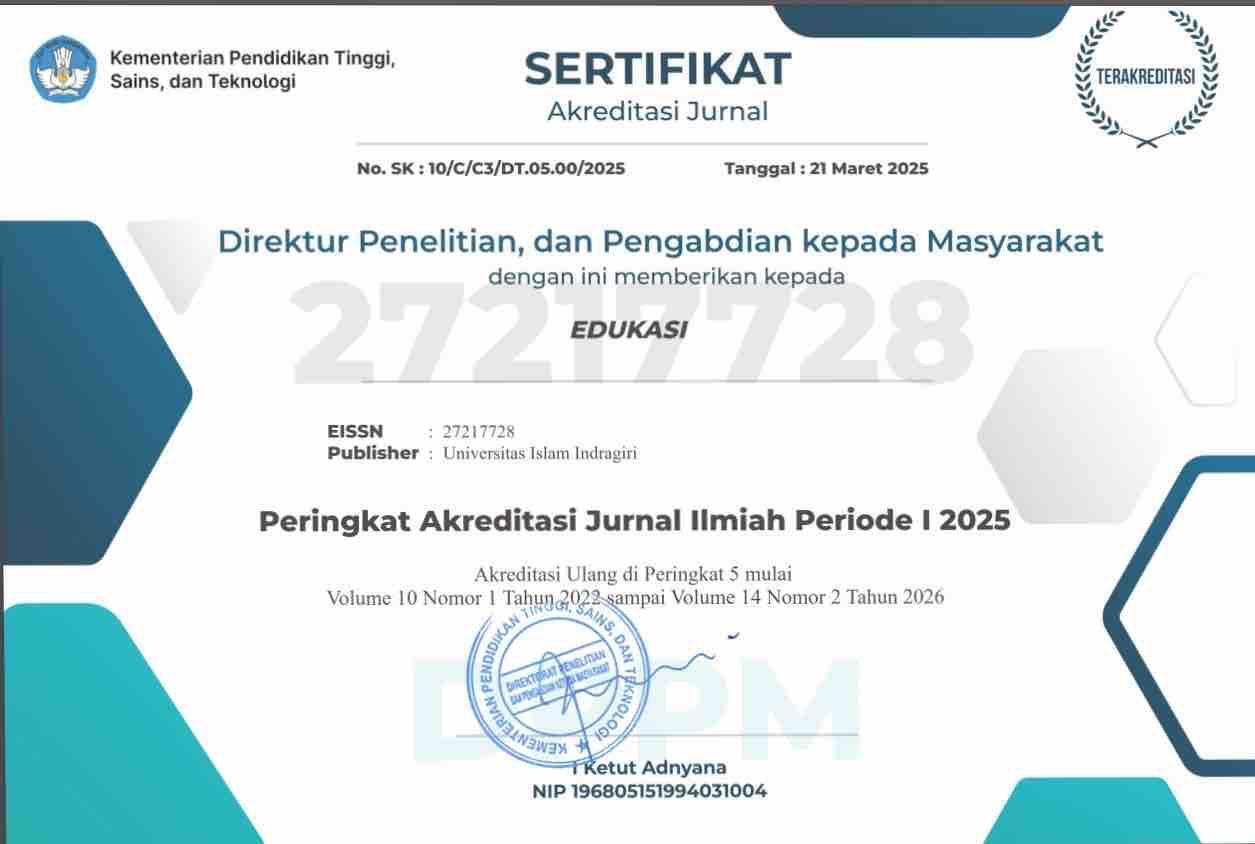Transformation of Assessment in Teaching English at Higher Education: Leveraging Quizizz to Enhance Student Participation and Motivation
DOI:
https://doi.org/10.61672/judek.v11i1.2603Keywords:
Transformative assessment, Quizizz, Gamified, English EvaluationAbstract
This qualitative case study delves into the transformative potential of integrating Quizizz, an interactive assessment tool, within the realm of English language instruction for novice students enrolled in the Islamic Education Department at STAI Auliaurrasyidin. Employing purposive sampling and thematic analysis, the research uncovers a notable shift in student engagement, motivation, and language proficiency. The study's outcomes underline Quizizz's gamified approach as a pivotal catalyst in redefining the assessment landscape, igniting a renewed enthusiasm for learning, and fostering an active and participatory classroom environment. The study reveals that Quizizz's gamified platform ignites student motivation and engagement, bridging the gap between apprehension and enthusiasm. Multiple-choice questions, a core feature of Quizizz, are particularly effective in overcoming novice language learners' challenges with open-ended queries. Classroom observations highlight the heightened sense of participation and active engagement during evaluations, fostering a dynamic learning environment. The implications extend beyond language instruction, resonating with the broader goals of holistic education and offering insights for enhancing pedagogical practices in Islamic studies and other disciplines.
Downloads
References
Alderson, J. C., & Urquhart, A. H. (1984). Reading in a Foreign Language: A Reading Problem or a Language Problem? Language Learning, 34(1), 55-70.
Braun, V., & Clarke, V. (2006). Using thematic analysis in psychology. Qualitative Research in Psychology, 3(2), 77-101.
Brown, H. D. (2014). Principles of language learning and teaching. Pearson Education.
Gill, J., & Zanelli, A. (2018). Beliefs about English as a supplementary subject: an exploratory study in Bangladesh. Asian Englishes, 20(3), 218-239.
Hidi, S., & Renninger, K. A. (2006). The four-phase model of interest development. Educational Psychologist, 41(2), 111-127.
Hock, M. F., & Deshler, D. D. (2012). The Academic Instructional Coaches' Handbook. Guilford Press.
Lim, B. R., & Morris, M. L. (2009). Learner and instructional factors influencing learning outcomes within a blended learning environment. Educational Technology & Society, 12(4), 282-293.
Lim, T., & Morris, M. (2009). Learner and instructional factors influencing learning outcomes within a blended learning environment. Educational Technology & Society, 12(4), 282-293.
Malone, T. W., & Lepper, M. R. (1987). Making learning fun: A taxonomy of intrinsic motivations for learning. Aptitude, Learning, and Instruction: Cognitive and Affective Process Analyses, 3(2-3), 223-253.
Palinkas, L. A., Horwitz, S. M., Green, C. A., Wisdom, J. P., Duan, N., & Hoagwood, K. (2015). Purposeful Sampling for Qualitative Data Collection and Analysis in Mixed Method Implementation Research. Administration and Policy in Mental Health and Mental Health Services Research, 42(5), 533-544.
Patton, M. Q. (2015). Qualitative research & evaluation methods: Integrating theory and practice (4th ed.). Sage Publications.
Ribeiro, I., & Santos, A. (2017). Quizizz: An engaging and learner-centered online assessment tool. In Proceedings of the 9th International Conference on Computer Supported Education (CSEDU 2017), Vol. 1, 199-206.
Richards, J. C., & Rodgers, T. S. (2014). Approaches and methods in language teaching. Cambridge University Press.
Shernoff, D. J., Csikszentmihalyi, M., Schneider, B., & Shernoff, E. S. (2014). Student engagement in high school classrooms from the perspective of flow theory. In Applications of flow in human development and education (pp. 475-494). Springer.
Skalski, P., & Tamborini, R. (2007). The role of social presence in interactive agent-based persuasion. Human Communication Research, 33(2), 143-159.
Skinner, B. F. (1990). Can psychology be a science of mind? American Psychologist, 45(11), 1206-1210.
Yilmaz, Y. (2016). Revisiting the role of English language teaching and learning in Turkish education policy. European Journal of Language Policy, 8(1), 57-71.








